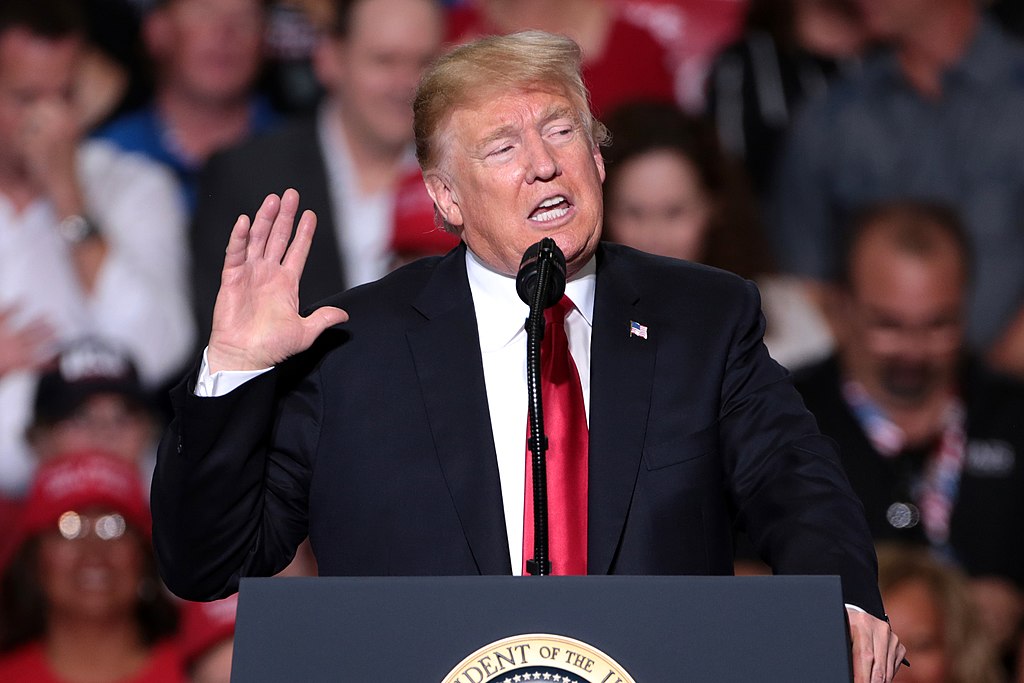In a recent exchange, President-elect Donald Trump suggested that the United States might reclaim control over the Panama Canal, citing "ridiculous" fees and alleged Chinese influence. Panama's President José Raúl Mulino responded firmly, asserting the canal's sovereignty and dismissing the accusations.
Historical Context of the Panama Canal
The Panama Canal, a vital conduit for international maritime trade, was constructed by the United States in the early 20th century and transferred to Panamanian control on December 31, 1999, under the Torrijos–Carter Treaties. These agreements ended U.S. jurisdiction over the canal, granting Panama full sovereignty while ensuring the canal's neutrality and open access for global shipping.
Trump's Assertions and Panama's Response
During a recent event in Phoenix, Trump criticized the fees imposed on U.S. vessels transiting the canal, describing them as exorbitant. He also expressed concerns about potential Chinese influence over the waterway, suggesting that the canal might be "falling into the wrong hands."
In response, President Mulino issued a statement emphasizing Panama's exclusive control over the canal. He declared, "Every square meter of the Panama Canal and its adjoining zone is Panama's and will remain so." Mulino also addressed the fee structure, stating that the tolls are established transparently, based on operating costs and market conditions, and are not excessive.
International Implications and Historical Precedents
Trump's remarks have raised concerns about a potential shift in U.S. foreign policy regarding the canal. Historically, the United States maintained control over the canal zone for nearly a century before transferring sovereignty to Panama. The 1977 Torrijos–Carter Treaties, which facilitated this transfer, were pivotal in redefining U.S.-Panama relations and ensuring the canal's neutrality.
Analysts suggest that any attempt to renegotiate these longstanding agreements could strain diplomatic relations and disrupt international trade. The canal remains a critical artery for global commerce, with approximately 5% of the world's trade passing through it.
Public Reaction and Social Media Discourse
The exchange between Trump and Mulino has sparked significant discussion on social media platforms. Twitter user @GlobalTradeWatch commented, "Revisiting control over the Panama Canal could destabilize international trade routes." Another user, @HistoryBuff2024, noted, "The Panama Canal's sovereignty was settled decades ago; reopening this issue seems unnecessary."
Conversely, @AmericaFirstAdvocate expressed support for Trump's stance, stating, "It's about time we reconsider our position on the Panama Canal; U.S. interests should come first." In contrast, @PanamaPride tweeted, "Our canal is a symbol of national pride and sovereignty; we stand with President Mulino."
Additionally, @TradePolicyExpert weighed in, saying, "Allegations of exorbitant fees need thorough examination; such claims can have broad implications." Meanwhile, @DiplomacyMatters cautioned, "Diplomatic tensions over the canal could have far-reaching consequences for international relations."
The recent statements by President-elect Trump and the subsequent response from President Mulino highlight the enduring significance of the Panama Canal in international politics and trade. As the situation develops, the global community will closely monitor any policy shifts that could impact this crucial maritime passage.



 U.S.-Iran Nuclear Talks Show Progress but No Breakthrough Amid Rising Military Tensions
U.S.-Iran Nuclear Talks Show Progress but No Breakthrough Amid Rising Military Tensions  ICE Hiring Surge Raises Vetting Concerns Amid Rapid Expansion
ICE Hiring Surge Raises Vetting Concerns Amid Rapid Expansion  UK Government Agrees to Release Documents on Peter Mandelson Appointment Amid Epstein Scandal
UK Government Agrees to Release Documents on Peter Mandelson Appointment Amid Epstein Scandal  Maduro Seeks Dismissal of U.S. Drug Trafficking Case, Citing Sanctions Interference
Maduro Seeks Dismissal of U.S. Drug Trafficking Case, Citing Sanctions Interference  Federal Judge Blocks Virginia Social Media Age Verification Law Over First Amendment Concerns
Federal Judge Blocks Virginia Social Media Age Verification Law Over First Amendment Concerns  Trump Floats Ted Cruz for Future U.S. Supreme Court Nomination
Trump Floats Ted Cruz for Future U.S. Supreme Court Nomination  Dominican Republic Unveils Massive Rare Earth Deposits to Boost High-Tech and Energy Sectors
Dominican Republic Unveils Massive Rare Earth Deposits to Boost High-Tech and Energy Sectors  Macron Urges Emergency UN Security Council Meeting as US-Israel Strikes on Iran Escalate Middle East Tensions
Macron Urges Emergency UN Security Council Meeting as US-Israel Strikes on Iran Escalate Middle East Tensions  Keir Starmer Faces Crucial By-Election Test in Manchester Amid Tight Three-Way Race
Keir Starmer Faces Crucial By-Election Test in Manchester Amid Tight Three-Way Race  Israel Declares State of Emergency as Iran Launches Missile Attacks
Israel Declares State of Emergency as Iran Launches Missile Attacks  UN Rapporteur Francesca Albanese Condemns “Toxic” Attacks Amid Calls for Resignation
UN Rapporteur Francesca Albanese Condemns “Toxic” Attacks Amid Calls for Resignation  Philippines, U.S., and Japan Conduct Joint Naval Drills in South China Sea to Boost Maritime Security
Philippines, U.S., and Japan Conduct Joint Naval Drills in South China Sea to Boost Maritime Security  Trump Orders Federal Agencies to Halt Use of Anthropic AI Technology
Trump Orders Federal Agencies to Halt Use of Anthropic AI Technology  Trump Media Weighs Truth Social Spin-Off Amid $6B Fusion Energy Pivot
Trump Media Weighs Truth Social Spin-Off Amid $6B Fusion Energy Pivot  USITC to Review Impact of Revoking China’s PNTR Status, Potentially Raising Tariffs on Chinese Imports
USITC to Review Impact of Revoking China’s PNTR Status, Potentially Raising Tariffs on Chinese Imports  Venezuela Oil Exports to Reach $2 Billion Under U.S.-Led Supply Agreement
Venezuela Oil Exports to Reach $2 Billion Under U.S.-Led Supply Agreement  Pentagon Leaders Monitor U.S. Iran Operation from Mar-a-Lago
Pentagon Leaders Monitor U.S. Iran Operation from Mar-a-Lago 






























